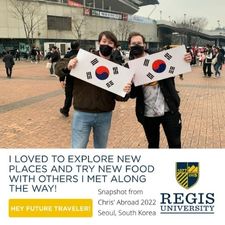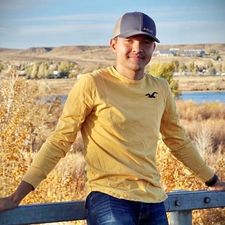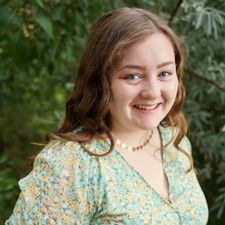Office of Diversity, Equity and Inclusive Excellence shares updates
From the Desk of our Vice Provost, Dr. Nicki Gonzales
ODEIE hosts discussion on history and legacy of Indigenous boarding schools
One of our fall highlights occurred on Oct. 14, when the Office of Diversity, Equity, and Inclusive Excellence hosted “Beyond the Land Acknowledgement: A Good Trouble Conversation” on the history and legacy of Indigenous Boarding Schools. These schools were run mostly by either the U.S. Government or the Catholic Church. Our conversation focused on Colorado’s Grand Junction Indian School, also called the Teller Institute, which operated as a boarding school for Indigenous youth—mostly from Colorado, New Mexico, and Arizona—from 1887 until 1911. Fr. Kevin Burke, Vice President for Mission, facilitated the conversation, which featured Dr. John Seebach, Ms. Cassandra Atencio, Ms. Deb Preston, and Ms. Grace Honeysette.
Dr. Seebach, an archaeologist at Mesa State University in Grand Junction, CO, provided the national and Colorado historical context for our conversation. He explained that his recent work on the history of the Grand Junction (Teller) Indian School was borne out of a general interest in the topic and a strong sense of social justice when it became clear the State of Colorado was going to allow this important history to be forgotten and quite literally paved over. Through his archival research, Dr. Seebach found evidence that 21 students died while enrolled in the school. This finding fueled his desire to find any document, map or photo showing the school cemetery. The location of the cemetery has been “lost” since at least the 1920s. When the news of the large cemeteries at the residential schools in Canada broke in 2020/2021, suddenly his work was thrust into the limelight, and he has been raising consciousness about the school and Indian education in general ever since. Dr. Seebach shared that he was finally able to locate a period sketch map providing a general idea of where the cemetery is located, at least within 30 acres.
Dr. Seebach’s presentation helped provide context for the individual testimonies of Southern Ute Tribal Member Cassandra Atencio and Regis’ own Deb Preston (Omaha) and Grace Honeysette (Navajo). Cassandra, Deb, and Grace recounted the boarding school experiences of close family members and the historical trauma that has resulted—both communally and in their own families. Their testimonies, which detailed the abuse, alienation, and cultural genocide that their families experienced, reminded us that the history of the U.S. Government’s Indian policies and the assimilationist policies of the Catholic Church did not disappear with the closing of the schools. They continue today, as Indigenous communities continue to cope with the effects of these schools.
In the end, each panelist responded to a question about what concrete steps we at Regis—both as a Jesuit university and as individuals who study and work at a Jesuit institution—are compelled to take to repair the historical damage created by the residential school system. Each of the panelists urged Regis to go further in educating our students, ourselves, and our community about this history. ODEIE agrees. We must insist on providing the space and resources to teach this history and to promote ways of addressing the historical trauma that lingers in Indigenous communities.
If you missed the conversation or would like to listen again, the recording will be available on Dayton Memorial Library’s website. Please email belong@regis.edu for more information.
Regis welcomes students for Dia de los Muertos
On Nov. 1, Regis hosted 150 students from 7 different high schools; Arrupe Jesuit High School, John F. Kennedy High School, Abraham Lincoln High School, North High School, South High School, West High School and Stead High School to celebrate one of the most ancient feasts in the cultural life of Mexico: Dia de los Muertos (Day of the Dead). The Indigenous peoples of Mexico dedicate time and energy to the preparation of this tradition that celebrates their departed family members’ lives, as well as their visit/return to our dimension here on earth. Students had their altars blessed in various locations on campus, enjoyed a tour of campus, and showing of Coco along with lunch. Thank you to all the faculty and staff across the university who helped make this day possible.
Join the next Good Trouble Conversation: “More than a Month”
9:30-10:45 a.m., Friday, Nov. 11, 2022
St. John Francis Regis Chapel
Join the Office of Diversity, Equity, and Inclusive Excellence as we partner with First Year Experience and come together in-person, to conclude a semester of university-wide conversations on Read Until You Understand-dedicated to celebrating black life and black literature. This Good Trouble Conversation will focus on the strengths and limitations of the institutional practice of annually observing events like Black History Month.
International students represent 42 countries
This year, our international students represent 42 countries from around the world, bringing a diversity of cultures and global perspectives to our campus and classrooms. We have formed a new International Student Advisory Board, run by a dedicated team of students, to help improve the experiences of current and future international student at Regis.
In addition, our Buddy Program this summer helped prepare and welcome 6 exchange students for their study abroad semester at Regis this fall. We also began our second year with the faculty/staff International Student Support group. Our international students who were paired with a faculty/staff member were thankful for their mentor's support and help. Thank you to all who made this a success! For those wanting to get involved in our international student's experience and success at Regis, please sign up to support our next round of incoming international and exchange students!
Study Abroad offers students a chance for exploration
 Regis University Study Abroad offers students a chance to explore the world, gain new perspectives and learn about themselves. Students can choose from over 100 programs in 38 countries. Every student participating in the study abroad program must enroll in the RCC440 Search for Meaning core requirement. The course helps students develop intercultural perspectives before going abroad. While abroad, they practice incorporating these tools into their experiences. Upon return, the class helps them discern and articulate what they have gained from their study abroad semester and how it will enhance their career or graduate school prospects.
Regis University Study Abroad offers students a chance to explore the world, gain new perspectives and learn about themselves. Students can choose from over 100 programs in 38 countries. Every student participating in the study abroad program must enroll in the RCC440 Search for Meaning core requirement. The course helps students develop intercultural perspectives before going abroad. While abroad, they practice incorporating these tools into their experiences. Upon return, the class helps them discern and articulate what they have gained from their study abroad semester and how it will enhance their career or graduate school prospects.
As expressed below in these quotes, studying abroad is a life-changing experience for many of our students.
"I have never learned more about myself than I did while I studied abroad. Truly, when you study abroad, you learn how to LIVE. You get so many life skills you would never learn in a lab scenario, and as a nursing student, that is all you are learning. Studying abroad is an amazing opportunity to live freely and learn about the world before you hunker down and really commit to the struggle bus that is nursing school."
"It is the best life decision I have ever made. It made me feel way more cultured and appreciate other parts of the world."
"I would study abroad to get the experience of a lifetime, it might sound cliché, but it is true; when they say you wish you could go back, we truly do mean it! You get to meet so many interesting people with diverse backgrounds and get to share your story with others. In Ireland, it is so beautiful, and the campus of Maynooth is stunning."
"I would do it a million times over. Truly the best part of my life so far. I grew so much and love who I have become because of it."
Student Work Study Reflections
 My name is Giovany Tarango, and I am from two very different worlds. I was born in the beautiful snowy mountains of Colorado, specifically a small town named Craig, just outside of Steamboat Springs. My blood is from the equally beautiful Sierra Tarahumara in Hidalgo de Parral Chihuahua in Mexico. This is where I was baptized and spent a large portion of my childhood. This duality is shown through my citizenship status as I am a citizen of both countries. I have two passports with different covers on them, and I am very proud of both as they have both played an especially important role in shaping the person I am today.
My name is Giovany Tarango, and I am from two very different worlds. I was born in the beautiful snowy mountains of Colorado, specifically a small town named Craig, just outside of Steamboat Springs. My blood is from the equally beautiful Sierra Tarahumara in Hidalgo de Parral Chihuahua in Mexico. This is where I was baptized and spent a large portion of my childhood. This duality is shown through my citizenship status as I am a citizen of both countries. I have two passports with different covers on them, and I am very proud of both as they have both played an especially important role in shaping the person I am today.
Education has always been seen as a luxury which was just out of reach for those who lived like my parents did in Mexico. When they made the life-changing decision to emigrate, they were hesitant, but a factor which pushed them to move was the fact that they knew that their future children would be able to receive an education, unlike them. This American education was not better by any means, in many aspects it was and still is worse, but it was available to anyone, not just the rich. They took the leap and years later they would see me, their first son, graduate with honors from high school. The job was and is not finished. College was the next step. I knew I wanted to not only be a first-generation American and high school graduate, but also the first generation to go to college. I chose to do this at Regis due to the proximity to my family, the community, the beautiful campus, and for the future opportunities it will grant me.
My work study at the Office of Diversity, Equity, and Inclusive Excellence is and has consistently been a way in which I am able to help serve not only my Hispanic community, but also a multitude of other minority groups on campus. It is a wonderful group of people who every day strive to better our campus by making it a better place for those who have historically been set aside. My role is to help make the dream of creating a diverse, equal, and inclusive campus come true. The job is never done, but our steps towards achieving this are much needed progress in a society who does their best to set these groups back.
 My name is Alexandria Bernhardt, I am a junior, double majoring in Peace and Justice and Music Performance for voice. I am involved in many areas around campus. Three of the roles I hold include: RUSGA Chief of Staff, a CDS in Desmet Hall, and an Office Assistant in the Office of Diversity, Equity, and Inclusive Excellence. What drew me to Regis when searching for colleges was how much emphasis was put on personal success and individualized attention. I could tell from the moment that I stepped on campus for my first tour that everyone cared about each other on a deep level. Since then, I have stayed at Regis for that exact reason.
My name is Alexandria Bernhardt, I am a junior, double majoring in Peace and Justice and Music Performance for voice. I am involved in many areas around campus. Three of the roles I hold include: RUSGA Chief of Staff, a CDS in Desmet Hall, and an Office Assistant in the Office of Diversity, Equity, and Inclusive Excellence. What drew me to Regis when searching for colleges was how much emphasis was put on personal success and individualized attention. I could tell from the moment that I stepped on campus for my first tour that everyone cared about each other on a deep level. Since then, I have stayed at Regis for that exact reason.
My experiences inside and outside of the classroom have shown me what a difference I can make in this world if I put my mind to it. Regis equips its students with the ambition to set large and attainable goals. This is immensely attributed to the faculty and staff that students interact with daily. I have worked in the Office of Diversity, Equity, and Inclusive Excellence for the last year. In the office, I manage the ODEIE Instagram (please follow us! @regisunidiversity) and help with events. Our events are thought-provoking, educational, and most importantly diverse. They aim to engage all students no matter what their identity, strengthening our community. The community built within ODEIE is unmatched, it is a safe space for all students to come to if they need support in a multitude of capacities. ODEIE is one of the gears in the machine of Regis University which makes it such a wonderful institution.
Learn more about a first generation support group
Dr. Marsha Tafoya (she/her/ella) offers a 1st Generation support group every other Tuesday from 10-11 a.m. in the Office of Diversity, Equity, and Inclusive Excellence office. The next one will be on Nov. 15. Dr. Tafoya also holds office hours, which are confidential and free from 9 a.m. to noon Tuesdays and from 1 to 5 p.m. on Wednesdays.
